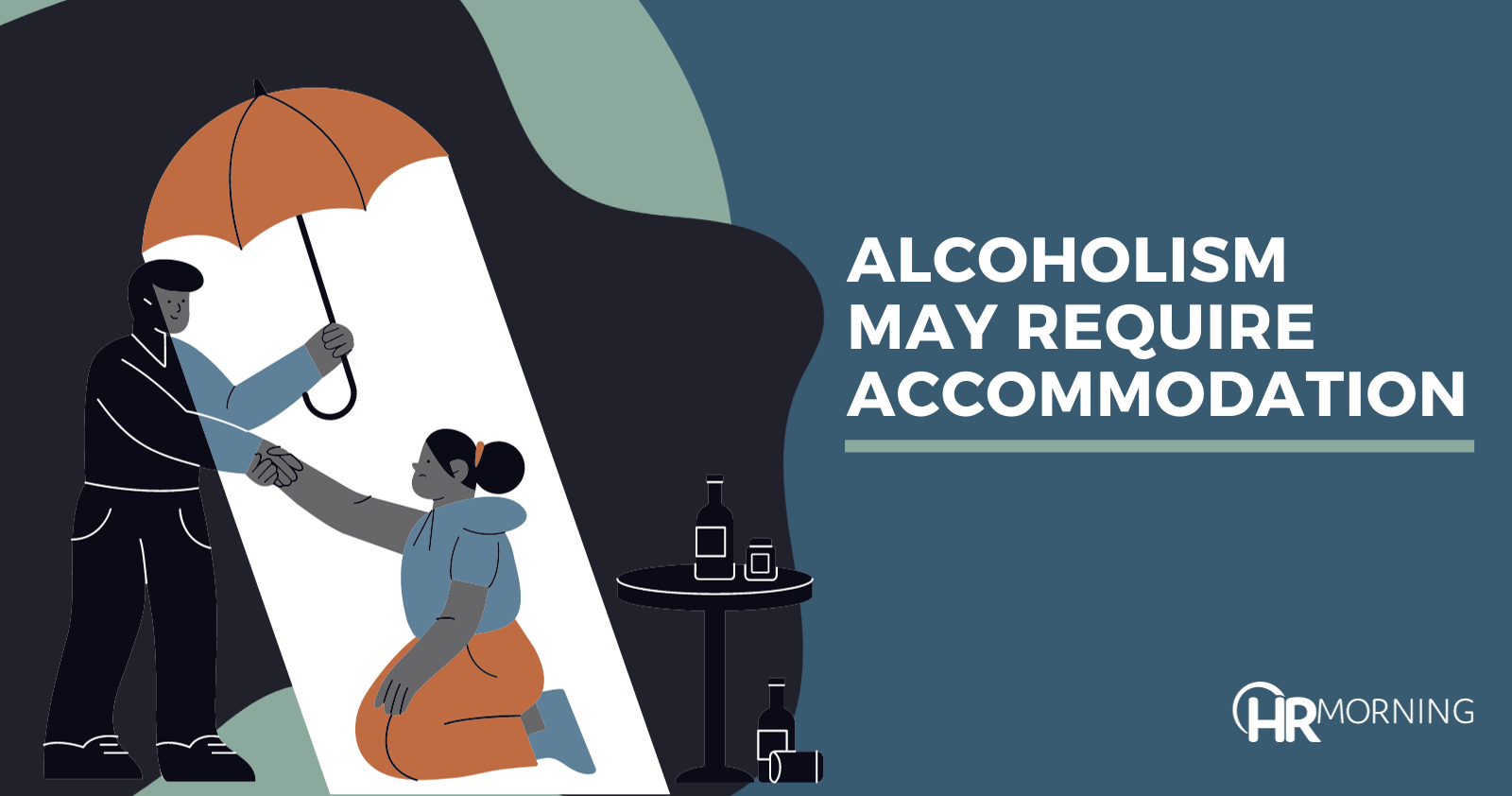A newly settled suit filed by the Department of Justice illustrates the tightrope employers must walk when dealing with employees who have alcohol use disorders.
The federal Department of Justice (DOJ) has tentatively resolved a charge that a Minnesota employer violated the Americans with Disabilities Act (ADA) by requiring a city worker to bear the cost of alcohol-related testing and evaluation.
The agency pursued the matter on behalf of an employee who began working for the city of Blaine’s public works department in 2006. The job required him to have a commercial driver’s license, and he supervised about four other employees.
Although the employee did not have any issues when it came to his job performance, he has an alcohol use disorder that is serious enough to qualify as a disability under the ADA, the DOJ said.
In May of 2020, the employee told his employer that he planned to take a 28-day leave so that he could attend an alcohol treatment program.
It was the first time the employer learned that he might be having issues related to alcohol use.
When it received that news, it told the employee that he needed to be evaluated by a substance abuse professional (SAP) within five days. It also gave him the name of its recommended SAP.
It further advised him that he would:
- be removed from safety-sensitive duties until he completed all of the SAP’s recommendations
- need to pass a return-to-duty test, and
- be subject to repeated follow-up testing when he returned to work.
The city has a policy that says any employee who tests positive for alcohol misuse or controlled substance use is on the hook for associated costs, such as those relating to SAP evaluations, follow-ups, education, treatment and follow-up testing. But it does pay for testing costs in other contexts, such as testing that is done as part of the hiring process, testing that is done after work-related accidents, and random drug testing of employees.
This employee never tested positive for alcohol misuse and did not have alcohol-related problems at work. Nonetheless, the city told him it was his responsibility to pay for his SAP evaluation and testing.
After the employee completed the treatment program, the city told him he needed to provide a formal evaluation and recommendation from the SAP.
And when he returned to work, it subjected him to repeated alcohol and drug testing, also at his expense.
The DOJ says the employee “found the testing experience to be extremely humiliating, including because it was conducted in a very unprofessional and degrading manner.”
It alleged in a complaint that the city violated the ADA by requiring the employee to pay for his alcohol and drug testing based on his disability.
In a proposed consent decree that was filed on the same day as the complaint, the parties agreed to resolve the nascent litigation. The decree, which does not include any admission of liability on the city’s part, nonetheless requires it to revise its policies, practices and procedures to say that it will pay for SAP services and related testing, where:
- an employee voluntarily discloses alcohol use disorder or other information about a disability, and/or participates in a drug or alcohol educational or treatment program
- the employee holds a CDL and is subject to DOT regulations, and
- a CDL driver does not self-identify as misusing alcohol or controlled substances to avoid DOT testing.
It also agreed to provide relevant training to employees and reports to the DOT. Finally, it agreed to pay the employee $13,229.07.
5 tips for accommodating employees with alcohol use disorders
- Though alcoholism may qualify as a disability requiring job accommodation, employers may hold alcoholic employees to the same performance and conduct standards as other employees. For example, excessive tardiness or insubordination need not be tolerated, even if it is caused by the employee’s alcoholism (as long as it is not tolerated from other employees).
- The ADA does not require an employer’s workplace ban on alcohol use to yield for employees with alcoholism. An alcoholic employee who violates such a rule can be punished in the same way as other employees.
- Though employers are free to discipline for violations of an alcohol policy, they are also free to steer employees to an employee assistance program in lieu of discipline. This is purely elective; the ADA does not require employers to establish employee assistance programs.
- Even when discipline is warranted and justified, employers may nonetheless separately need to provide a reasonable accommodation related to alcoholism. For example, an employer may lawfully impose discipline for alcohol-related misconduct and thereafter be required to grant leave to attend a treatment program (assuming the discipline falls short of termination).
- An employee who commits a terminable offense related to alcoholism need not be provided a last chance agreement, although employers are free to provide that option.


